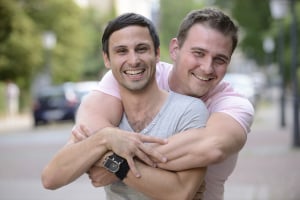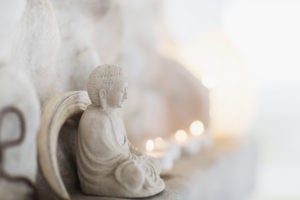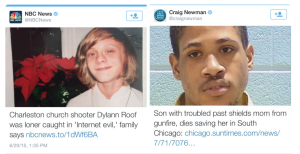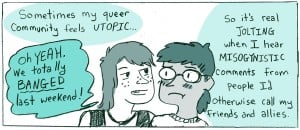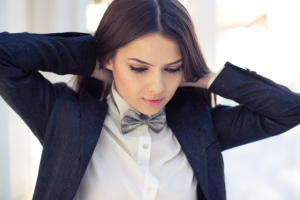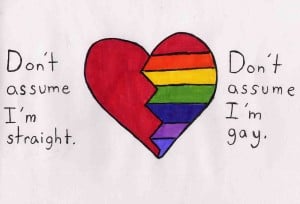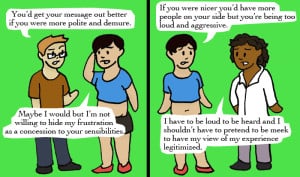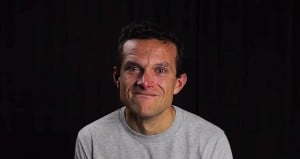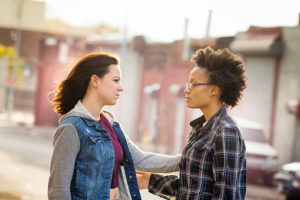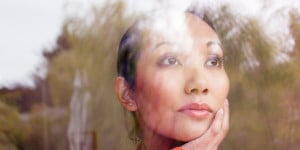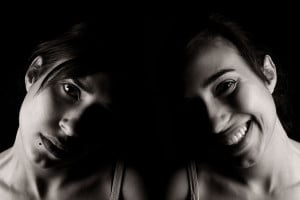
Originally published on xoJane and cross-posted here with their permission.
This is me as a girl. A 16-year-old kid.
When I was a senior in high school, I attended this college prep program held in the sanctuary of a Baptist church across the street from my grandmother’s $1 Soul Food restaurant in south central Los Angeles. High-achieving nerds from all over the city would meet up every Thursday to talk personal essays, financial aid and application fees well past 11 o’clock.
One night the guy I was crushing on gave me a ride home in his mom’s new-but-used white BMW. I think we were debating the merits of the Common app versus the UC app and listening to Tupac at a medium volume when those angry telltale lights began to flash behind us. Jay looked at me and laughed. Those couldn’t be for us.
Of course they were.
Two cops, one male, the other female, pulled us over not even two blocks from the one-bedroom shotgun I shared with my mom.
They asked us to get out of the car and against a nearby wall where we dutifully “spread ’em.” I didn’t look at Jay and he didn’t look at me, whilst we were felt up and asked a bunch of seemingly ridiculous questions whose answers couldn’t have been anything but “No.”
Are you concealing any weapons, drugs, anything illegal?
When the police were done humiliating us with ease they then explained that Jay, a 5’7” Filipino youth, looked “too young” to drive the car we were in. But clearly we didn’t look young enough to call anyone’s parents. Also Jay allegedly matched the description of someone who had done something.
It was all very vague and we were conditioned to do nothing more than nod.
The next day at school, Jay and I avoided each other before making a joke about it neither one of us thought was funny despite laughing nervously and hurrying off to the next period. We’d been changed slightly but significantly.
Considering the alternative, the whole five-minute experience was pretty vanilla. We were kids who’d gone through a vile rite of passage for kids who looked like us. Young in everything but perception. Innocent unless looked at twice.
Which is why, when I heard the story of 15-year-old Alexis Sumpter I wasn’t surprised. The Harlem teen was headed to a summer internship in downtown Manhattan when two plainclothes police men handcuffed and detained her for the crime of looking too old for a student metro card.

Cops called her father, who vouched that she was 15; still not believing her, they called her mother, who rushed over with her daughter’s birth certificate. Alexis was held in custody for 90 minutes altogether, and wasn’t arrested or given a summons; but she did go to the hospital because the handcuffs caused swelling on her wrists.
“I couldn’t fathom the idea of them saying I looked older than my age,” Alexis told the NY Daily News in an interview.
I’ve been contemplating the dangerous disconnect between women of color, age, maturity and perception for a while now. Actually it’ll hopefully be the subject of my next book. The idea that black women are often not allowed to participate in the innocence of youth in the same way that other girls and young women are, in my opinion.
Black women are often seen as older before they are. Adulthood is an assumed state of being for anyone taller than a 5th grader. We can also buy into the gravitas which that false perception affords us, giving birth to the “all knowing” sister girl stereotype that leaves little room for vulnerability.
Add to that the running joke that “Black don’t crack” or Liz Lemon hilariously not being able to tell if a black character is 21 or 40 on 30 Rock.
Remember 28-year-old George Zimmerman’s courtroom apology to the Martin family for murdering their 17-year-old Trayvon?
“I wanted to say I am sorry for the loss of your son. I did not know how old he was. I thought he was little bit younger than I am.”
What is it about black teenagers? Why does society so often view them through foggy glasses, shading over the lightness of youth with an assumption of worldliness (for lack of better word) that they haven’t gotten to yet? Let them get there.
This, of course, is why I’m so heartened by Gabby Douglas. She is everything I’d write on a slip of paper and stick in a box labeled “girl” or “child.”

She is smiles. She is fresh. She is aware but not nonchalant. She is somehow unburdened (despite the immense pressure).
I didn’t plan on writing about Gabby specifically. From the foolishness surrounding the non-news that is her hair, which was hyped by “the media” from stupid tweets into a week-long story, to the millions she’ll receive in endorsements, it seemed to me like everything had been said. But there’s something about why Gabby’s inspiring that remains unsaid.
Sure we’ve seen black athletes win in sports that we aren’t supposed to be good at — two sisters with the last name Williams come to mind. And we’ve heard of the underdog before, too.
For me the something about Gabby is that she comes off as the thing so many girls who look like her aren’t allowed to be outside their own bedrooms. And that is to say, a girl.
Helena Andrews is an author and screenwriter based in Washington, DC. Her work has appeared in The New York Times, Glamour, Marie Claire and a bunch of other places. Helena’s memoir-in-essays, “Bitch is the New Black,” was published by HarperCollins in June 2010 and is now available in paperback.
Search our 3000+ articles!
Read our articles about:
Our online racial justice training
Used by hundreds of universities, non-profits, and businesses.
Click to learn more







